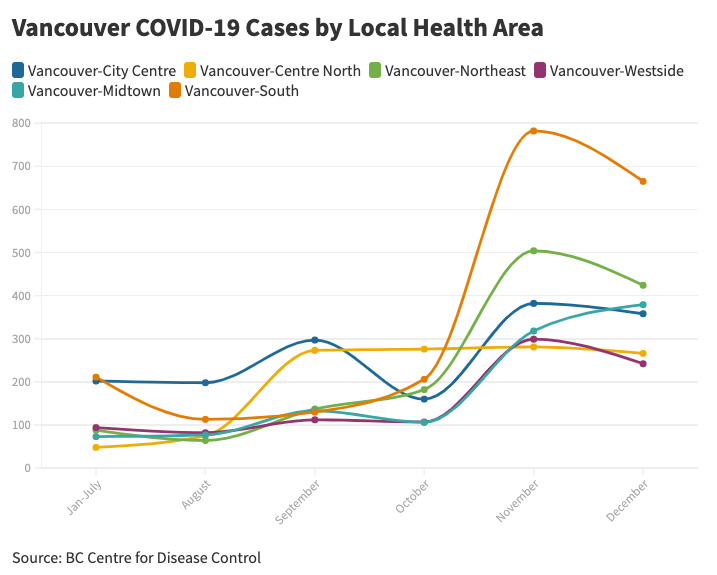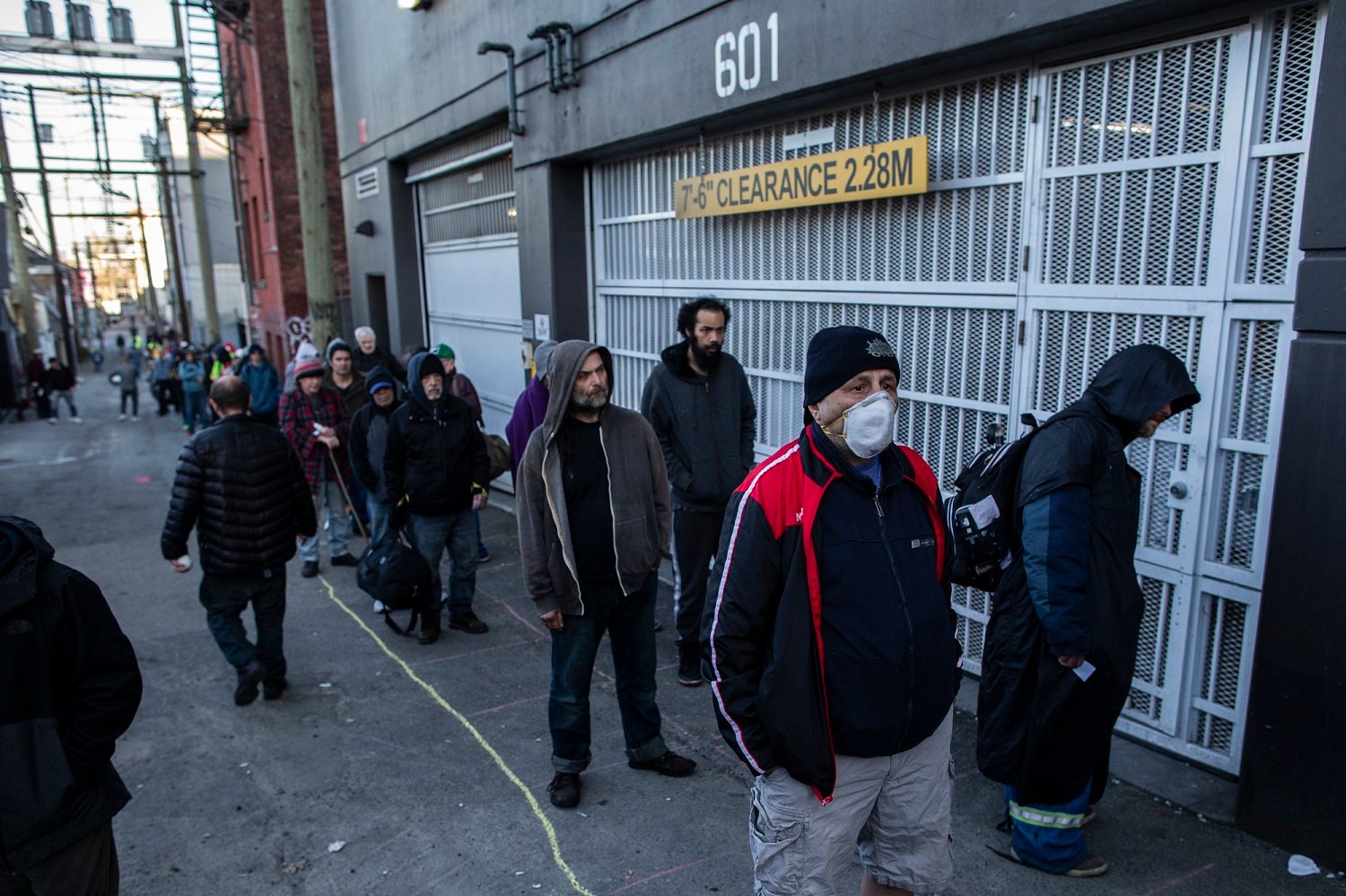The local health area that includes Vancouver’s poorest neighbourhoods continued to add COVID-19 cases throughout November and December, but Vancouver Coastal Health says “the curve is decreasing” among people who live and work in the Downtown Eastside, Chinatown and Strathcona.
Several organizations that run homeless shelters in the Downtown Eastside say they’re relieved that people who are unhoused have been included in the second group to get vaccinated for COVID-19.
“We’re super happy to see that our sheltered and unhoused community is among the first priority groups for the vaccine,” said Jeremy Hunka, a spokesperson for Union Gospel Mission.
“When it comes to the when, the sooner the better, because there’s no time to lose and we’re encouraging rolling this out to the community as soon as possible.”
Carmen Lansdowne, executive director of First United Community Ministry, said her staff met with Vancouver Coastal Health on Tuesday and were told vulnerable Downtown Eastside residents and frontline workers are near the top of the list for vaccination. Lansdowne said it isn’t yet clear whether the vaccination program will include people who live in more permanent supportive housing.
Tanya Fader, housing director for PHS Community Services, said it’s her understanding that residents of supportive housing and people who are homeless or staying in shelters are included in that group.
“We’re feeling pretty well set up to just hit the ground running when it happens, because we’ve been involved in so many health blitzes before,” Fader said. But she warned people need to continue to do all the measures to prevent the spread of COVID-19, such as social distancing, wearing masks and washing hands frequently.
During a press conference earlier this week, provincial health officer Dr. Bonnie Henry said B.C. is currently focused on vaccinating health-care workers, people who live in long-term care homes and remote First Nations communities.
The next priority group includes seniors who live in the community, people living in shelters or who are homeless, people in correctional facilities and mental health residential care or group homes. The province hopes to vaccinate that group throughout February and March.

Vancouver Coastal Health did not respond for a request for more information about vaccinations and has yet to share its data on the Downtown Eastside with The Tyee.
Fader said PHS is still seeing a steady handful of cases in buildings the organization operates and says it’s important to stay vigilant.
“I’m still expecting there to be some spikes of several people at a time, both staff and residents.”
In November, The Tyee reported that the local health area that includes the Downtown Eastside had the highest rate of COVID-19 cases per capita in the city, based on data for September and October published by the BC Centre for Disease Control. The area, which also includes Chinatown, Strathcona, part of Grandview Woodland and north False Creek, has the lowest incomes and lowest life expectancy in the city.
Residents and advocates have been fearful of an outbreak of COVID-19 in the Downtown Eastside because so many people in the neighbourhood have pre-existing health conditions and live in deep poverty and in crowded housing with shared washrooms and kitchens.
But November and December data shows the area no longer has the highest rate of COVID-19, because cases have been increasing in other areas of the city.
The local health area that includes the Downtown Eastside saw 281 more cases in November and 219 cases in the first three weeks of December.
Vancouver Coastal says it has been closely tracking cases among residents and people who work in the Downtown Eastside and the number has not been increasing.
Downtown Eastside residents who do get the virus are more likely to be hospitalized, according to Henry. And a small number of people who live in the neighbourhood have died after becoming ill with COVID-19.
“Our community is uniquely at risk, because of some of these underlying health conditions and some of these other factors in the Downtown Eastside that make people vulnerable to worse outcomes of COVID-19,” Hunka said, adding he knows several people who were hospitalized after getting the virus.
*Story updated on Jan. 7 at 9:16 a.m. to include comments from PHS Community Services. ![]()
Read more: Coronavirus, Municipal Politics
















Tyee Commenting Guidelines
Comments that violate guidelines risk being deleted, and violations may result in a temporary or permanent user ban. Maintain the spirit of good conversation to stay in the discussion.
*Please note The Tyee is not a forum for spreading misinformation about COVID-19, denying its existence or minimizing its risk to public health.
Do:
Do not: